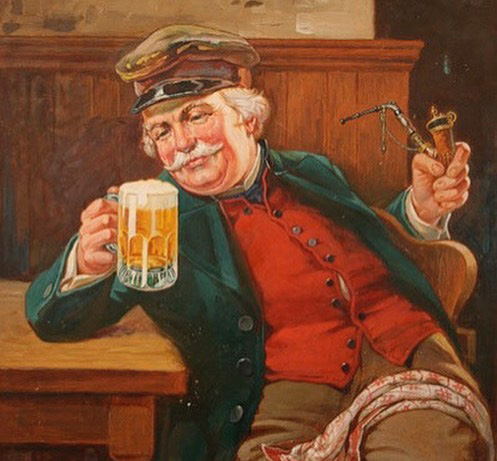In our column One Word, writers expound on their favorite words.
My uncle Henry has killed a lot of people.
In spite of his dark past, and because of it, he’s my favorite American uncle. Since I cherish bilingually, in English and in Spanish, I cherish my uncles and my tíos separately. The border separates us, cleaving family from familia.
My favorite tío was Alvaro. Unlike Henry, he wasn’t a genius. He never killed anybody, though he was known to get rough with English. His favorite T-shirt was a little too tight and its stenciled letters declared LIFE’S A BEACH!
To visit Alvaro, I travel thousands of miles, to a cemetery in Guadalajara. To see Henry, I need only walk a mile from my apartment to a skilled nursing facility beside a hipster barbershop and an Irish pub.
Henry no longer speaks about the people he killed as an artillery officer, but decades ago, he often rambled about them to my father, his little brother. He shared specifics. He described GIs slicing free enemy ears, threading them together, crafting leis of shriveled lobes. He told about exploded water buffalo dripping from trees, pink rain. He talked about calling in an air strike and obliterating everyone and everything in a village, all life wiped out except for a single baby.
When Henry returned to California from Vietnam, the baby followed him. He continued to hear it crying. He looked for that baby everywhere, including underneath his mother’s house.
He couldn’t find it.
Henry hears, sees, and smells things no one else can, and these supernatural powers earned him a diagnosis: paranoid schizophrenia. When I was a kid, Henry’s abilities terrified me. Sitting on a Victorian settee in my grandmother’s house, he’d ramble, jumping from topic to topic: Hidden treasure! Aliens! Murder! Chimpanzees! Radioactivity! Lemons! He smiled and nodded at people I couldn’t see. I feared that his insanity might be contagious. Once I became a teen, my father used Henry’s condition to terrify me into conformity.
“If you keep acting like this,” he’d say about my high school eccentricities, especially my penchant for dressing as though I belonged in Salem, “you’ll end up like Henry.”
As a child, I often found Henry unnerving, but there was something romantic in how he looked and lived, something I eventually came to aspire to. Conjure a weather-beaten Paul Newman with wild emerald eyes, long hair fixed into a ponytail by a resplendent green bow. This bedraggled character wears a tattered leather bomber jacket and an iguana, perched upon his right shoulder, squints at you. That’s Henry. He does avuncular in bohemian, schizoid style.
Avuncular, however, is most often used to describe the villainous father of a lesbian once employed by the Coors Brewing Company: Dick Cheney. In fact, the introduction to Lou Dubose and Jake Bernstein’s biography, Vice, opens with, “Dick Cheney—bald, gray, avuncular …”
The first time I heard that adjective, it was in reference to Cheney. I was watching TV with my friend Cristina, our veep appeared onscreen, and Cristina mentioned something about his avuncular nature. I get angry when others know words I don’t, so I demanded, “Avuncular? What does that mean?”
“Like an uncle,” she explained. I felt schooled and I liked it. I walked to my bookshelf, pulled down the dictionary, and opened it to the a’s. After locating Cristina’s word, I carried the dictionary to my desk and grabbed a pen. In the margin, beside the adjective, I scribbled the vice president’s name.
The Christmas that I was ten years old, Henry gave me the best gift I’ve ever received: a frozen tamale wrapped in a Pope John Paul II T-shirt. Henry saw John Paul at the Los Angeles Coliseum when the wizened Pole was touring America in his twentieth-century sedia gestatoria: the Popemobile. I lost my papal T-shirt in college, along with my virginity. I wept. The shirt meant a lot to me. It meant that in spite of Henry’s intensely different reality, he was very capable of love.
My love for my uncle Henry is nearly patriotic. It’s a devotion akin to nationalism, which makes sense considering that the United States is personified by an uncle. On November 15, 1961, Congress passed a resolution declaring that “in a world hostile to the idea of freedom we must keep alive the cherished values of our way of life.” This goal would be achieved by honoring the “symbol of ‘Uncle Sam’ ” who “was evoked out of the needs of a young Nation, and is linked to a grassroots character.” The resolution legally enshrined an uncle as America, making him an “official and permanent” myth.
In addition to schizophrenia, Henry also suffers from Parkinson’s. Uncle Sam exposed him to Agent Orange. Because of mistreatment and neglect at Veterans Administration–contracted nursing facilities, Henry has become partially paralyzed. He describes the worst of these facility experiences as having been “like the jungle.”
In a world hostile to banal kindness, schizophrenic style, and grassroots flair, Henry clears a path for me. He taught me how to cultivate habits of mind and body. When I had doughnuts and coffee with him last week, I asked him, “What do you think of Uncle Sam?”
He mumbled, “I’m your Uncle Sam.”
“What does Uncle Sam mean to you?” I asked.
Henry replied, “Someone to win the war. They use him in marching bands. Down to receive soldiers.” He paused. Then, he announced, “The wisdom of the day! Hi.”
Myriam Gurba is the author of Mean, a nonfiction novel and memoir. She lives in California and loves cash, succulents, and the elderly.
from The Paris Review https://ift.tt/2Te3ApP

Comments
Post a Comment